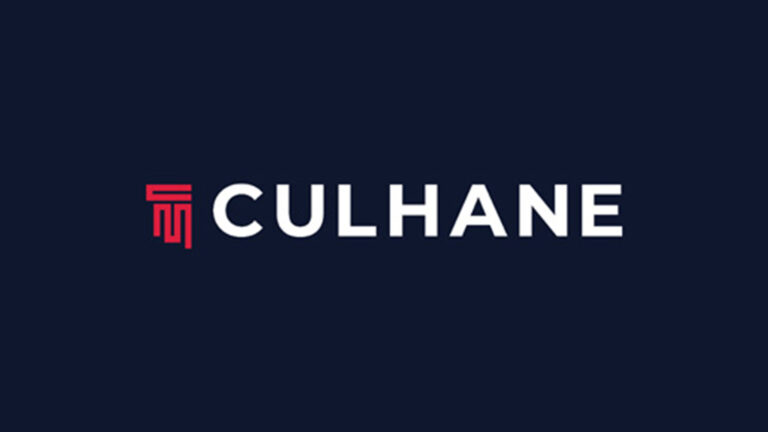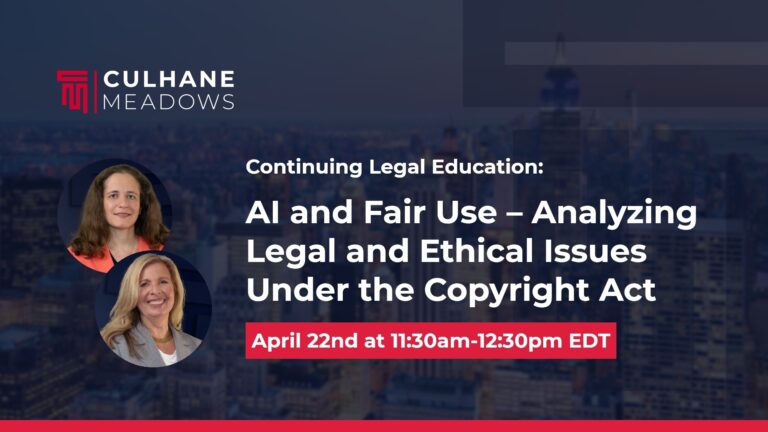 Daniel Struck, Insurance Practice Chair at Culhane Meadows PLLC, has prepared this timely summary about navigating insurance coverage in the wake of coronavirus. With the continuing disruptions caused by the COVID-19 pandemic and the evolving efforts to limit the toll of the viral outbreak, insured businesses and organizations should actively engage counsel to help them with identifying the potential adverse impacts of the pandemic on their operations and act to marshal their available insurance assets. Faced with potentially significant losses and liabilities, it is prudent for insured businesses and organizations to begin identifying potentially responsive insurance policies in their portfolios; assessing the impact of policy terms, conditions, and limitations; identifying and quantifying potential exposures; and providing notice to the relevant insurers in the event of a potentially covered claim or loss. This analysis necessarily depends on issues of policy construction and interpretation and the application of a complex and developing set of facts to policy terms. The attorneys in our insurance practice group are available to counsel and assist businesses and other organizations in this effort. For more information: dstruck@cm.law.
Daniel Struck, Insurance Practice Chair at Culhane Meadows PLLC, has prepared this timely summary about navigating insurance coverage in the wake of coronavirus. With the continuing disruptions caused by the COVID-19 pandemic and the evolving efforts to limit the toll of the viral outbreak, insured businesses and organizations should actively engage counsel to help them with identifying the potential adverse impacts of the pandemic on their operations and act to marshal their available insurance assets. Faced with potentially significant losses and liabilities, it is prudent for insured businesses and organizations to begin identifying potentially responsive insurance policies in their portfolios; assessing the impact of policy terms, conditions, and limitations; identifying and quantifying potential exposures; and providing notice to the relevant insurers in the event of a potentially covered claim or loss. This analysis necessarily depends on issues of policy construction and interpretation and the application of a complex and developing set of facts to policy terms. The attorneys in our insurance practice group are available to counsel and assist businesses and other organizations in this effort. For more information: dstruck@cm.law.
The COVID-19 pandemic has caused widespread human tragedy, resulting in more than sixteen thousand (as of this writing) deaths worldwide in the space of a few months. It is unknown whether the pandemic will abate in a couple of months or will continue to ebb and flow in recurring outbreaks. In an effort to “flatten the curve” of the outbreak, governments around the world have issued “shelter-in-place” or “lockdown” orders, resulting in the discontinuation or disruption of all but “essential” business activity. At this moment, four of the six largest cities in the United States are under shelter-in-place orders, as is nearly one-third of the population – but the situation is fluid and these figures will be obsolete by the end of the day.
The COVID-19 outbreak, and the efforts to control it, will continue to have an extraordinary impact on daily life and on businesses – both large and small. The impacts on business include interruptions or cessations of operations, disruptions of the supply chain, and concerns with the health and safety of employees and customers. Some businesses (including those in the restaurant, retail, entertainment, hospitality and gaming, and travel industries) may be unable to continue operating or will be forced to operate in a severely constrained manner for the duration of the pandemic. Businesses that can continue operations under some semblance of “normal” may find that their operations are adversely affected by supply chain disruptions or limitations on travel. Financial services, legal, consulting, and accounting firms, among others, may find it necessary to incur additional expenses to adapt to a workplace that has changed as a result of closures and orders to shelter-in-place. It is uncertain how widespread or long-lasting the economic fallout of the pandemic will be, and some industries will be hit more severely than others.
As businesses face multiple streams of loss of unknown duration and impact, it is natural to ask whether the insurance for which substantial premiums have been paid might provide some protection or help to offset those losses. The answer is … it depends. Businesses typically buy an array of insurance coverage, with different types of policies covering different categories of risk. The range of liabilities and losses that may result from to the COVID-19 pandemic is far-ranging and may implicate multiple lines of coverage. The availability of coverage for any particular claim depends on the type of coverage, the terms and language of the insurance policy, how those policy terms are interpreted, and the particular facts and circumstances of the claim. Seemingly minor differences in policy terms, including exclusions and whether optional coverages were purchased, will have a substantial impact on whether an insurance policy is available to defray a business’ losses. Coverage disputes are a certainty. Therefore, as with any developing situation likely to result in losses, insured businesses and organizations should begin the process of reviewing their current insurance coverage, identifying their actual and potential losses, and assessing the extent to which their insurance coverage may respond.
A brief overview of some of the potentially responsive categories of coverage follows:
Commercial First-Party Property Insurance: For many businesses, the most immediately tangible adverse impacts of the pandemic and the efforts to limit its impact will include the loss of income associated with business closures and interruptions, the expenses incurred in order to continue operations, and the costs and expenses associated with supply chain disruptions. Losses of this type may be covered under one or more of the business income or interruption coverages found in most commercial first-party property insurance policies (or the first-party coverage portion of a package or businessowners’ insurance policy).
Lost income and the added expenses associated with trying to continue operations during a disruption in normal operations are typically covered under the basic business income/interruption coverage extension found in a commercial first-party property insurance policy. This coverage generally covers both lost business income (the sum of the net profit that would have been earned in the absence of an interruption and the continuing normal operating expenses incurred, including payroll and business rent) and extra expense (the expenses incurred during an interruption in order to mitigate loss and continue operations) resulting from an interruption in business. However, a major caveat to this coverage is that most insurance policy forms require that the relevant business interruption be the result of “direct physical loss or damage” to insured property. Insurers almost certainly will argue that the business disruptions resulting from COVID-19 are not the result of direct physical loss or damage to property. State courts are widely split on whether the physical loss requirement is satisfied by contaminants or disease-causing organisms. In addition, first-party property insurance policies may contain exclusions for loss resulting from bacterial or viral agents or, more, generally from pollution. Establishing coverage under the basic business interruption coverage extension likely will require a very fact-sensitive analysis — the claim of the owner of an office building that had to close because a tenant tested positive for coronavirus will be very different from the claim of a manufacturer that is not able to secure needed supplies from a vendor in Wuhan, P.R.C.
Losses resulting from supply chain disruptions or the inability to access a location on which a policyholder depends in order to conduct its business, are addressed by contingent or dependent business income coverage. This coverage extension is often an optional coverage that must be elected by a policyholder. This coverage extension generally applies to the lost business income, continuing operating expenses, and extra expense incurred due to damage or disruption to the suppliers, customers, or other key partners of an insured business. Under this coverage extension, the insured business does not need to suffer physical damage but there must be some loss, of the type covered, at or around the location of the entity on which the insured is dependent. The wording of this coverage extension varies from insurer to insurer and it is important to parse carefully the conditions and requirements of a particular dependent income insuring agreement in light of the facts and circumstances of an insured’s loss.
In addition, some commercial property policies may contain business interruption coverage for the lost income, continuing operating expenses, and extra expense that result when access to the insured’s premises is limited or prevented by order of a governmental authority. Generally, it is a condition of a governmental authority coverage extension that the relevant order was issued as a result of physical damage to property or in order to prevent physical damage to property. But policy forms differ widely in their scope and terms and it is important for an insured to compare the relevant policy terms to the facts and circumstances of the insured’s loss.
General Liability: Commercial general liability (CGL) insurance (or the CGL part of a package/ businessowners’ insurance policy) covers an insured for claims brought by third-parties for bodily injury, personal injury, and property damage. CGL policies also typically require the insurer to provide a defense of potentially covered claims. For a business that has pandemic-related liability claims, CGL coverage may be a valuable resource. But it is likely that causation – whether a claimant’s injury can be linked to the premises or operations of an insured – will be a hotly disputed issue. It is important for policyholders to familiarize themselves with the notice requirements of the relevant CGL policies, and to determine whether those insurance policies contain exclusions for claims resulting from bacterial or viral infections that were introduced in the aftermath of the SARS and H1N1 outbreaks.
Workers Compensation: This type of insurance covers expenses resulting from employment-related injuries and occupational diseases. The scope and terms of workers compensation coverage are determined by applicable state law. If an employee is infected in the course of employment, this coverage may be responsive. However, establishing a connection between an employee’s illness and employment may be a hotly disputed issue given the highly contagious nature of the novel coronavirus.
Directors and Officers/Errors and Omissions: Insured businesses (and individual insured persons) also should expect that claims triggering their Directors and Officers (D&O) or Errors and Omissions (E&O) insurance policies may be brought in the fallout of the COVID-19 pandemic. D&O policies may provide coverage for claims brought by shareholders or other stakeholders alleging that management or the Board failed to disclose financial risk or failed to plan adequately for business disruptions. Claims against the directors of non-profits that the financial impact of COVID-19 related disruptions could have been limited with proper management or adequate financial planning also are possible. Professional service providers may face claims triggering their E&O coverage alleging that disruptions in service that could have been prevented with adequate planning caused injuries to clients.
Other Specialized Insurance: Some businesses, such as event organizers or travel companies may have specialized insurance to protect against the risk of cancellations due to a covered cause or event. How the triggering event or cause is defined by the relevant insurance policy, and the presence of any applicable exclusions, may determine the availability of coverage. These policies should be reviewed closely to assess whether they will respond to losses resulting from pandemic-related cancellations.
In addition, some cyber-risk insurance policies contain business interruption, contingent business interruption, and governmental authority business interruption coverage. In general terms, these types of coverage apply to interruptions in business due to the inability of an insured to access its network or data. The language of cyber-risk policies varies from insurer to insurer and there is no such thing as “standard” policy language. Depending on the circumstances of a particular insured, it may be worthwhile to assess whether there is coverage under these extensions of coverage.
Download PDF of this article HERE.
The foregoing content is for informational purposes only and should not be relied upon as legal advice. Federal, state, and local laws can change rapidly and, therefore, this content may become obsolete or outdated. Please consult with an attorney of your choice to ensure you obtain the most current and accurate counsel about your particular situation.







